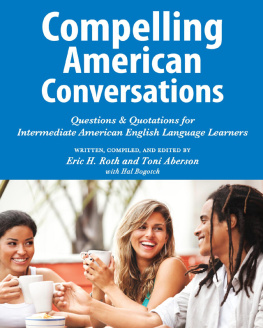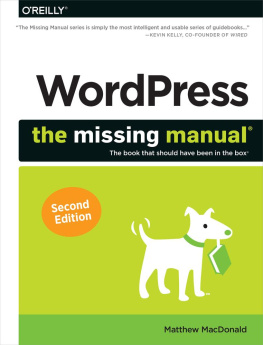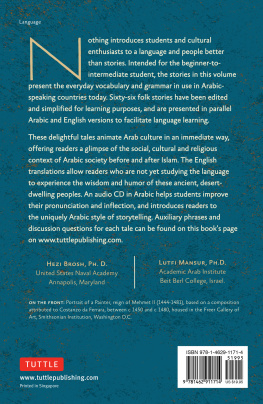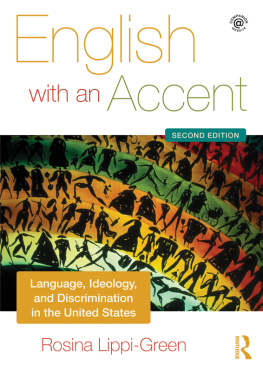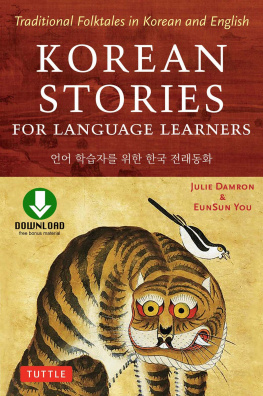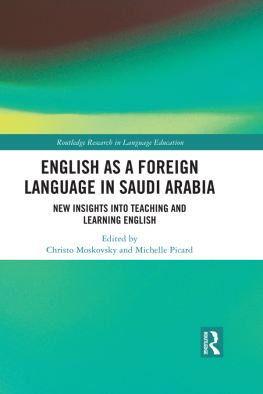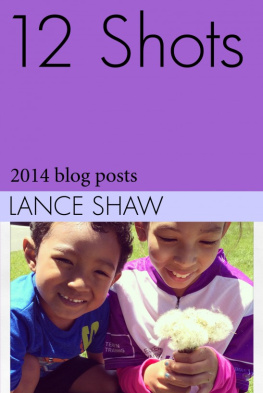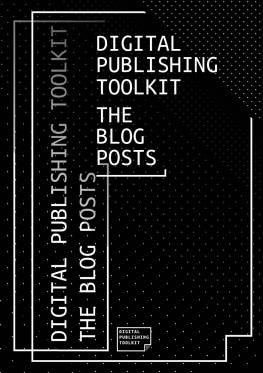Big Questions in ELT
By Scott Thornbury
A round publication
www.the-round.com
Copyright 2013 Scott Thornbury
All rights reserved. No part of this publication may be reproduced, stored in a retrieval system, or transmitted in any form or by any means electronic, mechanical, photocopying, recording or otherwise without the prior permission of the authors. Please contact us at www.the-round.com for more information.
Cover design by Mark Bain
Illustrated by Piet Lthi
Edited by Alison Silver

Thanks
.to Piet Lthi for the illustrations. Big thanks , too, to Lindsay and Luke for initiating and shaping this idea. Very special thanks to my editor Alison Silver for her expertise, insight and enthusiasm.
And thanks to all those who have contributed to my blog over the years. Without your comments this book would not have been possible.
Acknowledgements
The author is grateful to Guardian News & Media Ltd for permission to reproduce an extract from an article by J. Foer .
Contents
Introduction
For two years now Ive been regularly blogging about ELT-related issues that have caught my attention. The topics have been loosely organized around the format of an encyclopaedic dictionary Id published previously, called An A - Z of ELT . Ive since clocked up over a hundred posts that in turn have attracted thousands of comments comprising I dont know how many tens of thousands of words.
A couple of things that have emerged from this long conversation are: (1) the same issues come round and round, and (2) they are often framed as questions.
The issues tend to relate to my other life as advocate of a Dogme approach to ELT teaching, i.e. the use of minimal materials so as to free up the classroom space (and the cognitive space) in order to allow student-initiated learning opportunities to arise naturally.
That the issues are framed as questions is partly due to the fact that there are still no answers to many of the concerns that exercise us, and partly because, in my teaching and in my training, I favour dialogue over monologue, and dialogue almost by definition entails asking questions.
Like many things online, the blog has started to become a little unwieldy, especially for new visitors, so I figured it was time to condense some of the issues and some of the questions into a friendlier format, taking a handful of the original entries as my starting point, re-working them a little to take into account the conversations that evolved online, and presenting them in the form of Big Questions.
Each Big Question, therefore, has been generated from one of the original blog posts (and Ive thrown in a couple of new ones for good measure) and each entry is rounded off by a number of subsidiary questions the offspring, if you like, of the Big Questions. These questions are designed as an aid to reflection (for the individual reader), or, in a training context, as a way of framing a discussion or workshop. In a sense, they are a means of re-activating, and continuing, the online conversations that the original blog posts triggered.
And, if you want to see how those conversations evolved, Ive provided links to the original articles.
1 How many words do learners need to know?

In a recent article in The Guardian , Joshua Foer (2012) describes how h e learned Lingala (a trade language of sub-Saharan Africa), and discovered the value of having a critical mass of vocabulary:
It goes without saying that memori z ing the 1,000 most common words in Lingala , French or Chinese is not going to make anyone a fluent speaker. That would have been an unrealistic goal. But it turns out to be just enough vocabulary to let you hit the ground running once you re authentically immersed in a language.
This reminded me of the anecdote that opens an article I wrote on the lexical approach (Thornbury 1998: 7):
A New Zealand friend of mine who is studying Maori asked me recently what I, as a language teacher, would make of his teacher s method: We just do masses of words around a theme, for example, family, or food , etc. We have to learn these words before the next lesson. Then we come back and have a conversation about family, food , etc., and we use the words. The teacher feeds in the grammar that we need to stick the words together. He added that he thought the method worked a treat. This contrasted markedly with my own experience of learning Maori, where the teacher took great pains to lead us, discrete step by discrete step, through the intricacies of Maori grammar. The net result, I suspect, is that my friend s Maori is a lot better than mine
Is there any (non-anecdotal) evidence that fast-tracking vocabulary acquisition provides a platform for subsequent language development? And, if so, how many and which words constitute a critical mass ?
Certainly, it seems that having a large vocabulary is a pre-requisite for proficiency in the receptive skills. As Bhatia Laufer (1997: 31) puts it: By far the greatest lexical obstacle to good reading is insufficient number of words in the learner s lexicon. [In research studies] lexis was found to be the best predictor of success in reading, better than syntax or general reading ability.
How many words, then, are sufficient to push learners over the threshold, beyond which texts start to make sense? In the 1990s, t he bar was set at around 90 per cent , i.e. comfortable reading could be achieved if 90 percent of the words in any given text were fam iliar to the reader. Ninety per cent represents a receptive vocabulary of around 3,000 words. Since then, the figure has crept inexorably upward. But the target still seems achievable.
For example, Eldridge et al . (2010: 82) investigated the vocabulary needs of learners who are studying school subjects in a second language, and found that the evidence suggests a distinct lexical threshold of around 1,600 1,700 of the most frequent word families. (A word family is a group of words that share the same root but have different affixes, as in care, careful, careless, carefree, uncaring, carer ; 1,600 to 1,700 word families represent around 6,000 individual words . ) They add that students who fall even 200 or 300 word families below the threshold seem to have a vastly reduced vocabulary in total and consequently find it extremely difficult to cope with content studies in the medium of English .
Setting the bar at even 2,000 word families means learning 20 word families a week over two years, starting from zero: a daunting task, but not an impossible one.
Nor a thankless one. There are grounds for believing that vocabulary size may be a reliable predictor, not just of reading proficiency, but of linguistic competence overall. Certainly, in first language acquisition, the processes of vocabulary development and grammar emergence are closely intertwined, with the former possibly driving the latter. Tomasello (2003: 93), for example, cites research that shows that only after children have vocabularies of several hundred words [do] they begin to produce in earnest grammatical speech , which suggests to him that learning words and learning grammatical constructions are both part of the same overall process .
Joshua Foer s experience ( ibid. ) would seem to corroborate this view:
[ a ] basic vocabulary gives you a scaffolding to which you can attach other words as you hear them. It also lays down the raw data from which you can begin to detect the patterns that define a language s grammar. As I memori z ed words in Lingala , I started to notice that there were relationships between them. The verb to work is kosala . The noun for work is mosala . A tool is esaleli . A workshop is an esalelo . At first, this was all white noise to me. But as I packed my memory with more and more words, these connections started to make sense and I began to notice the same grammatical formulas elsewhere and could even pick them up in conversation.
Next page

